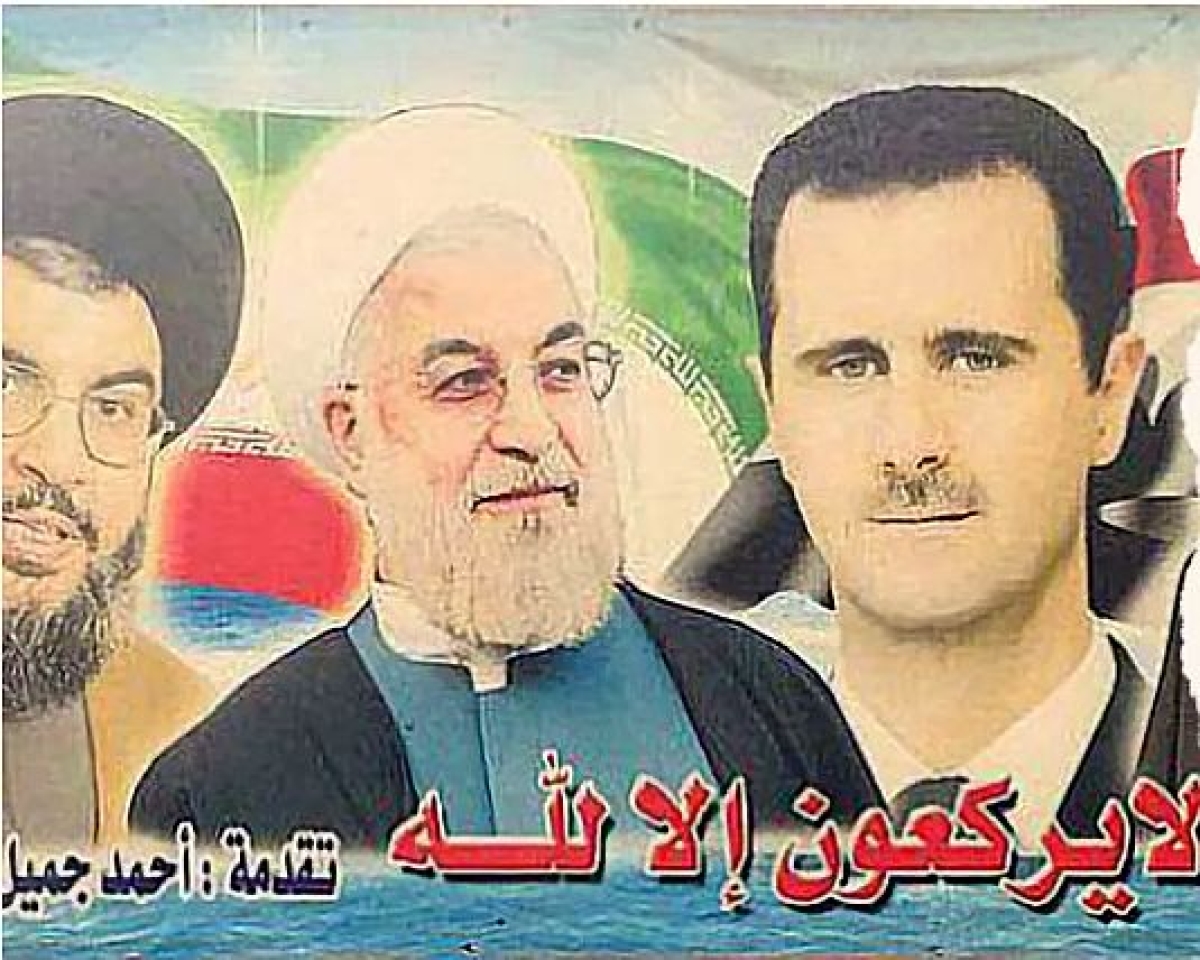Iran exportiert seine islamische Revolution nach Syrien

Iran hat in Syrien längst überall Fuß gefasst, Plakat in Damaskus, Bildquelle: privat
Für das Washington Instutute erklärt Omar Abu Layla, wie der Iran versucht seine islamische Revolution nach Syrien zu exportieren:
"Iran’s Islamic Republic was founded on the idea of "exporting the revolution," and it has continued to apply this ideology whether in Iraq, Yemen, or Lebanon. Sunni-majority Syria has also proved a necessary, if unlikely component in this desire to form a “Shia crescent” loyal to Iran.
To this end, Iran is working hard to establish its feet in Syria socially and ideologically by strengthening its influence in pre-existing shrines while also building new ones, such as the shrine of Sayyida Zainab in Damascus. In areas such as Deir al-Zour, which have an absolute Sunni majority, it has worked to change the very makeup of the region by attracting young people to its militias and attempting to convert youth through social benefits or via cultural activities. These include “The Mahdi Scouts,” Quran memorization courses, Persian language classes, and trips to its recently built shrines such as the “Ain Ali” shrine. Iran has also sought to bring Afghans, Iraqis, and other militia members to visit from outside Syria, and has been sure to secure places for new converts.
These efforts are already producing a degree of success: Iran has succeeded in recruiting many young people and their families, although they are few compared to the overall composition of a tribal area such as Deir al-Zour. Nevertheless, many residents of Deir al-Zour still fear the slow but steadily effective Iranian strategy over the years.
While some believe that an overall increase in militia elements may ultimately outweigh the economic incentives, Iran is already fortifying this strategy by increasing the wages of its fighters and increasing its sectarian “missionary” activities. Iran has also developed strategies to maintain the wages of its fighters, borrowing the regime’s method of financing itself through the Captagon trade. With over 50 drug manufacturing sites producing Captagon, crystal meth, and Hashish, Syria has now been labeled the "Captagon Republic. (...)
Iran is operating with the same long-term strategy that it always has, remaining steadfast in the hope for future results. And these results are already coming to fruition. It is now possible to see Iranian features in the western city of al-Mayadin, for example. The diligent work of Iranian cultural centers, Husseiniyas, and shrines is a good indicator of Iran’s vision beyond military expansion.
With limited international interest in concretely preventing the softer aspect of Iranian influence in Syria, the most important thing for Syrians vis-à-vis Iran is to work with local communities to confront Iranian ideological expansion. Many residents fear a real, growing and deliberate Iranian ideological penetration, and are eager to preserve their cultural heritage and separate identity even in the face of coordinated Iranian attempts to erode it."
"